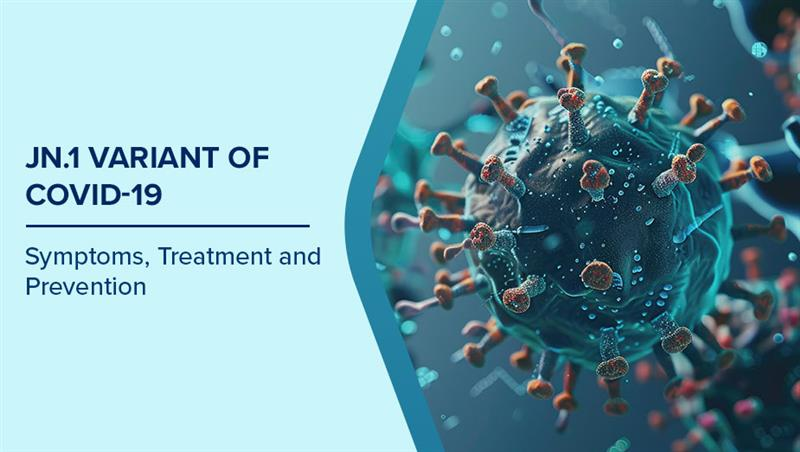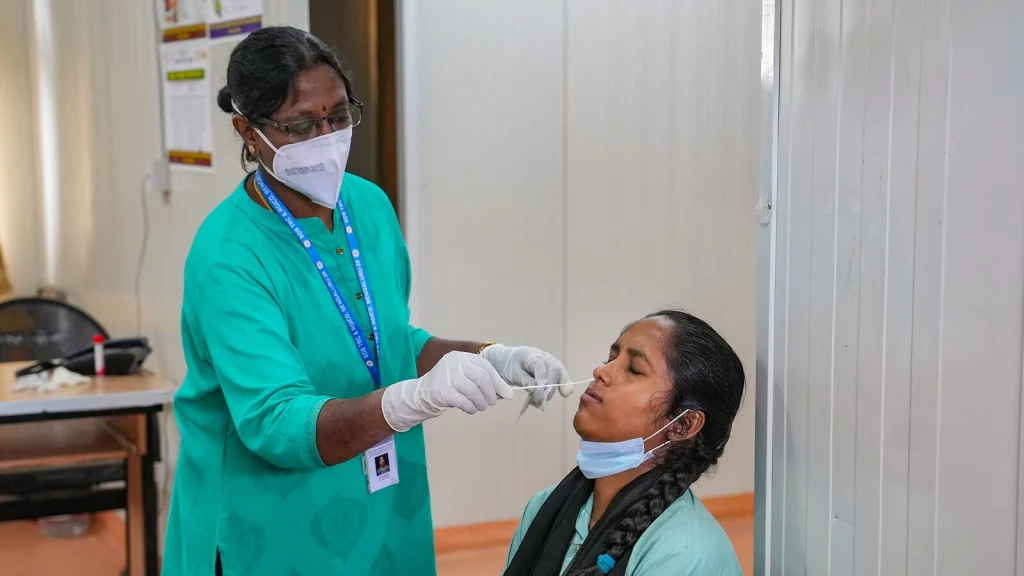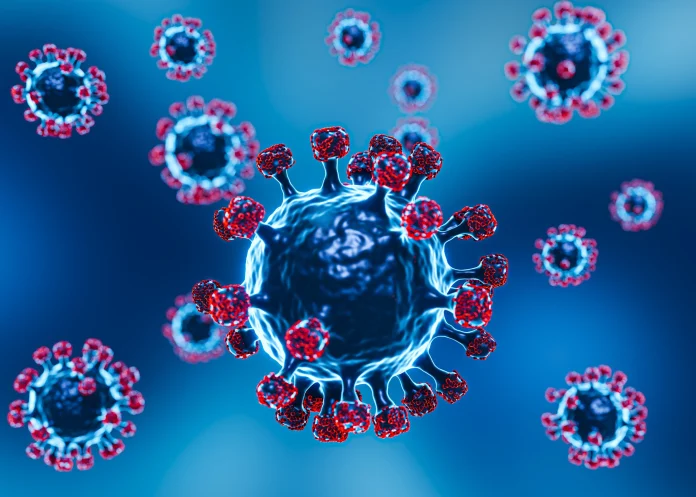COVID-19 New Variant JN.1 Symptoms: The number of COVID-19 cases is rising quickly once more. In India, there are 257 ongoing cases, according to government statistics made public on May 19. It is crucial to be cautious about the signs and preventative measures in such a case.
The number of COVID-19 cases in Asia, especially India, has increased in recent weeks. This dangerous virus, which first surfaced in 2019, appears to be resurfacing. New virus cases are rising quickly, particularly in nations like China, Singapore, Hong Kong, and Thailand. In addition, as of May 19, 2025, 257 active cases have been reported in India.
The states of Tamil Nadu (34), Maharashtra (44), and Kerala (69) have reported the most instances. Three cases are pending in Delhi. Additionally, several additional cases have been discovered in Sikkim, Rajasthan, Gujarat, Haryana, and Karnataka. This time, the JN.1 variation and its sub-variants, LF.7 and NB.1.8, are thought to be the primary cause of infection.

Through weakened immunity, the virus is infiltrating the body.
These all belong to the Omicron family and are capable of spreading quickly. In December 2023, JN.1 was designated a “variant of interest” by the World Health Organization (WHO). With over 30 mutations, this variety was initially discovered in August 2023 and can evade the body’s immune system.
This variation spreads quickly.
Experts claim that although the JN.1 form is highly transmissible, it is not causing a more serious illness. The most common locations for the JN.1-related LF.7 and NB.1.8 sub-variants are Singapore, Hong Kong, and Thailand.
JN.1 characteristics
Pharyngitis, fever, rhinorrhea or nasal congestion, persistent dry cough, exhaustion, headache, loss of taste, loss of smell, muscle soreness, conjunctivitis, diarrhea, and vomiting are some of the symptoms that patients infected with JN.1 may encounter.

Professional judgment
Experts and the health department encourage people to acquire a booster dose and use caution when dealing with the new Covid type. People with pre-existing conditions, children, and the elderly in particular need to take extra care.
Preventive actions
When coughing or sneezing, cover your mouth and nose with a tissue or handkerchief to prevent contracting COVID-19. Hands should be well cleaned with soap. If you are sick with a cold, cough, or fever, stay away from public places. Make sure you get enough rest. Tissue paper should never be reused. Also, don’t shake your hands.
Disclaimer: The information provided here is based on general knowledge and home remedies. Consult a doctor before adopting it.
Read More: iQOO’s two powerful tablets launched—check prices.

| Join Our Group For All Information And Update, Also Follow me For Latest Information | |
| Facebook Page | Click Here |
| Click Here | |
| Click Here | |



